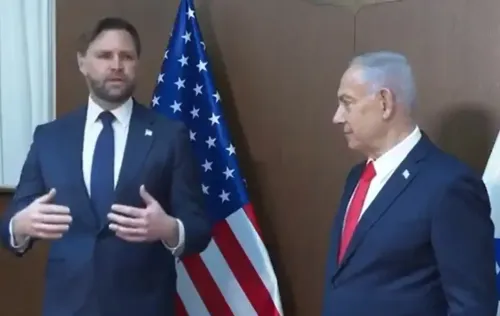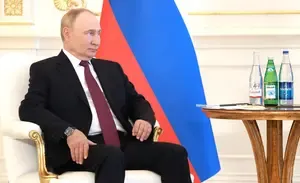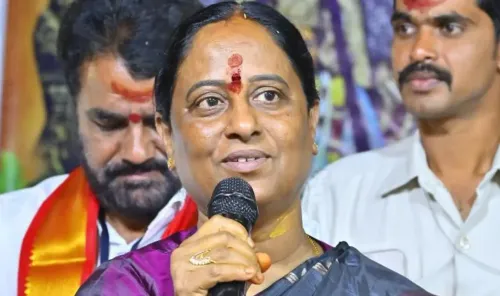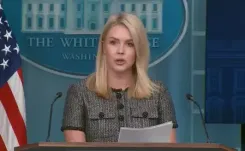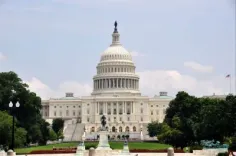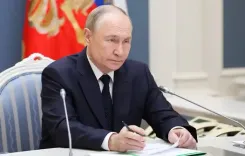Why is BJP's ally TMP imposing a 24-hour shutdown over eight demands in Tripura?
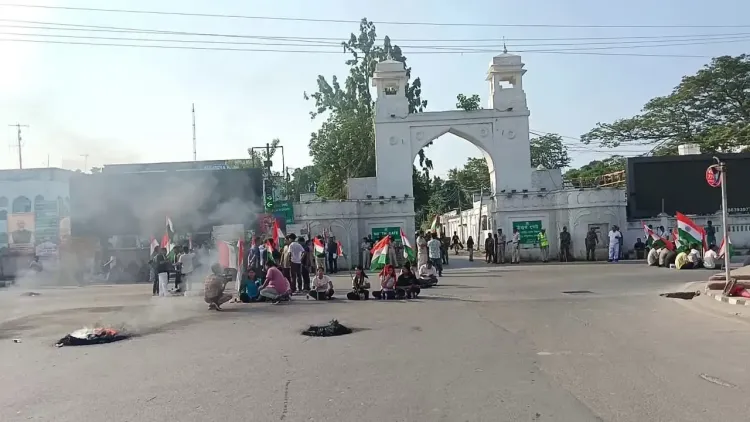
Synopsis
Key Takeaways
- The shutdown significantly disrupted normal life in Tripura.
- Eight key demands of the Tipra Motha Party were highlighted during the protest.
- The government maintained that all offices would remain operational despite the shutdown.
- Security forces were deployed to manage the situation effectively.
- The political landscape in Tripura is evolving with the involvement of the Tipra Motha Party.
Agartala, Oct 23 (NationPress) Life in Tripura faced significant disruption on Thursday after the Tipra Motha Party (TMP), an ally of the ruling BJP, initiated a 24-hour shutdown to advocate for its eight-point agenda, which notably includes the deportation of illegal migrants.
A senior police official reported that picketers staged sit-in protests at over 52 strategic locations throughout the state, including two sites along railway tracks in the West Tripura and Khowai districts.
“There have been no reports of disturbances across the state. The police and administration are managing the situation effectively,” the official noted, highlighting the deployment of large security forces, including the Tripura State Rifles (TSR) and the Central Reserve Police Force (CRPF).
While attendance in most government offices and banks remained near normal, many private businesses, shops, and markets were shuttered. Public transport on major highways, especially National Highway-8, which is crucial for Tripura, was halted as supporters of the shutdown blocked roads at various points.
The Tiprasa Civil Society (TCS), led by TMP MLA Ranjit Debbarma, organized this shutdown on Thursday to raise awareness about its eight-point demands.
These demands encompass the immediate execution of the Tiprasa Accord, identification and deportation of all illegal immigrants, establishment of detention centers in every district, conducting elections for the Village Committees under the Tripura Tribal Areas Autonomous District Council (TTAADC), and the introduction of an Inner Line Permit system to curb infiltration.
Debbarma, a prominent TMP leader, mentioned that several BJP-governed states like Assam, Gujarat, Maharashtra, and Delhi have taken measures against illegal migrants, yet the Tripura government has not acted, despite advice from the Ministry of Home Affairs (MHA).
“The BJP administration conducts elections in all urban and rural sectors, yet it refrains from holding the elections for the Village Committees under the TTAADC,” Debbarma stated to the press.
Previously, the Tripura government had announced that all its offices would operate on Thursday, acknowledging a statewide bandh called on October 23. “In light of the bandh, government offices and public sector undertakings will be operational on October 23. The government workforce will function as usual,” the notification indicated.
Opposing the shutdown, Chief Minister Manik Saha stated on Wednesday that development cannot be hindered by strikes in the state. Although he did not specify any individuals or parties, he implied that an NGO is behind the bandh.
“Numerous NGOs have also voiced their opposition to the strike,” he added. “The bandh is intended to attract media attention and convey that something is amiss in Tripura, but development cannot be stifled this way,” Saha remarked to the media.
CPI(M) Tripura state secretary and Leader of Opposition Jitendra Chaudhury also opposed the shutdown, asserting that the issues prompting the strike do not pertain to the common populace.
Following extensive discussions and a tripartite agreement with the Centre and the Tripura government on March 2 last year, the then-opposition, tribal-based TMP, with 13 MLAs, allied with the BJP-led government on March 7, 2024, thereby altering Tripura’s political landscape. Two TMP MLAs, Animesh Debbarma and Brishaketu Debbarma, were included in the ministry led by Chief Minister Manik Saha.
The TMP, under the leadership of Pradyot Bikram Manikya Debbarma, had also staged a demonstration in Delhi on September 9 to press for its demands.
The party continues to advocate for the establishment of Greater Tipraland, a distinct state for tribals under Articles 2 and 3 of the Constitution, and for the prompt conduct of the long-overdue Village Committee elections within the TTAADC regions. Since 2021, the TMP has been managing the 30-member politically vital TTAADC, which encompasses two-thirds of Tripura’s 10,491 sq km area and is home to over 12.16 lakh individuals, approximately 84 percent of whom are tribals.

